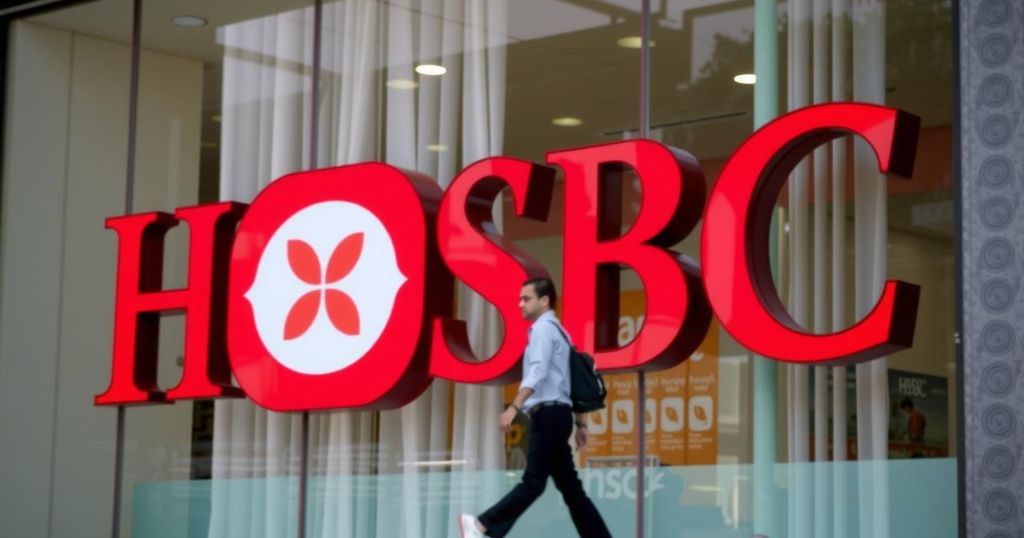HSBC is contemplating scaling back retail banking operations in Mexico, Malaysia, and Indonesia, targeting high-income clients as part of a cost-cutting strategy. Under new CEO Georges Elhedery, the bank is set to implement a reorganization that focuses on efficiency across its global operations, with formal changes expected by January 2025.
HSBC is reportedly planning to reduce its retail banking operations in several countries, including Mexico, Malaysia, and Indonesia, according to a recent report by the Financial Times. The bank aims to concentrate its efforts on higher-income clients in these markets while reallocating resources to its core regions, notably the United Kingdom and Hong Kong. Presently, no definitive decisions have been made regarding these potential changes, and HSBC has not yet provided additional comments on the matter.
The bank’s presence in Mexico since 2002 has resulted in nearly $30 billion in deposits. However, HSBC has encountered significant challenges, notably a $2 billion penalty imposed by U.S. authorities in 2012 due to lapses that facilitated money laundering. This recent consideration follows HSBC’s previous strategic exits from consumer operations in the United States, Canada, and France.
Under new leadership, HSBC Group Chief Executive Georges Elhedery, who assumed his role in September, is focusing on enhancing efficiency by concentrating on affluent clients. Earlier this month, HSBC announced job reductions aimed at achieving annual savings of approximately $500 million. In a press release dated December 5, the bank disclosed that it is in the process of implementing a global reorganization, appointing leadership teams within its four principal divisions.
Elhedery articulated the focus of this restructuring: “The new structure will ensure we can better focus on the businesses where we have clear competitive advantage and the greatest opportunities to grow — and will help us to deliver best-in-class products and service excellence to our customers.” HSBC is set to implement these structural changes by January 1, 2025, following earlier announcements on October 22 about streamlining operations into four designated business units. The organization’s 18-member Group Executive Committee is being replaced with a leaner Group Operating Committee of 12 members.
HSBC has a long-standing global presence, entering various international markets as part of its expansion strategy. The bank’s operations in retail banking have come under scrutiny over the years due to regulatory challenges and compliance issues, particularly regarding money laundering. The current strategic shift reflects HSBC’s response to these challenges and a broader trend among global financial institutions to refine their focus and operational efficiency. The decision aligns with the banking sector’s evolving landscape, where financial institutions pivot towards high-net-worth clients as a sustainable growth strategy.
In summary, HSBC’s potential reduction of retail banking operations in Mexico, Malaysia, and Indonesia signifies a strategic pivot towards focusing on wealthier clients amidst previous operational challenges. This move is part of a broader reorganization aimed at enhancing efficiency and aligning the bank’s resources with its core markets. As HSBC navigates these changes, the implications for its global operations and client relationships will be closely observed.
Original Source: www.pymnts.com






